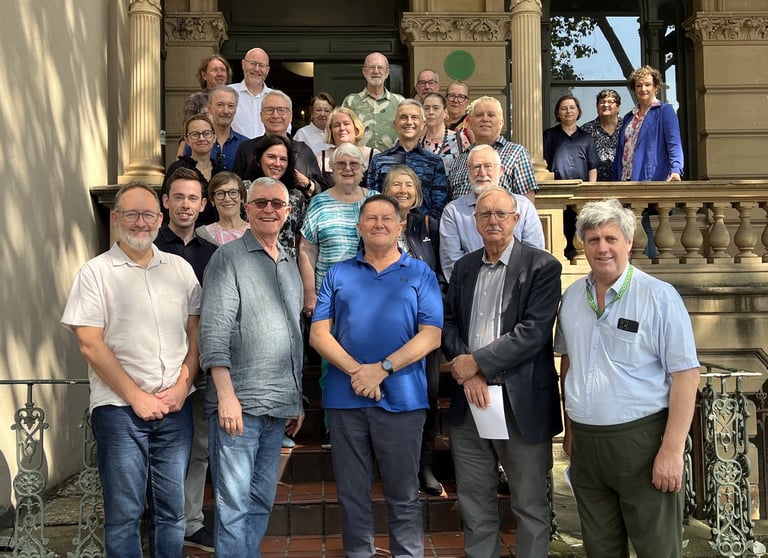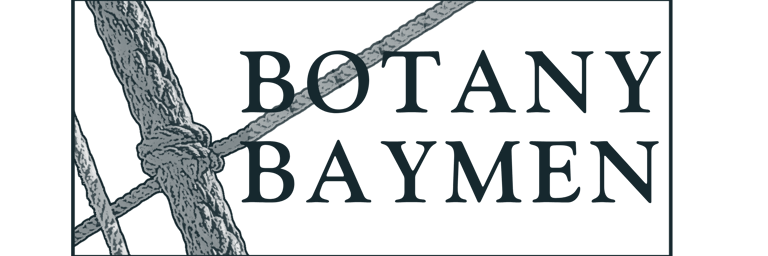Colloquium on Convict Society
Gary L. Sturgess
3/16/20254 min read
On the 14th and 15th of March 2025, I chaired a Colloquium on the Convict System and Early Colonial Society at History House in Macquarie Street, Sydney, which brought together most of the leading scholars working in this field.
The event was invitation-only, and the format was based on a seminar I attended at the Greenwich Maritime Institute around 15 years ago – academics and PhD students, professional historians and independent researchers speaking for 20 minutes on their current research projects and then discussing their work with colleagues.
One of the objectives was to enable scholars to expose their current research to debate and discussion by others with different areas of expertise. A second was to introduce these researchers to each other, in many cases for the first time, to create a sense of community among those working in this field.
One of the striking aspects of the papers presented, and the expertise of those who attended as participants, was the diversity of subjects currently being explored, and the much wider range of sources now being accessed. But there were also signifcant differences in methodology - in addition to traditional academic research: big data and AI; micro-history, narrative history, genealogy and family history.
The following is a bare outline of the presentations (since there is not space here for more):
The Convict System
Dr Deborah Oxley, retired Professor of Social Science History at the University of Oxford, who (among other things) worked on the ‘Convict Workers’ project in the 1980s, spoke on the English criminal law in the 19th century and how it functioned in practice.
Dr Kiran Mehta, who was visiting from the University of Leicester briefly described her research, including her book, ‘To Detain or to Punish: Magistrates and the Making of the London Prison System, 1750-1840’, shortly to be published.
Professor Martin Gibbs, an archaeologist at UNE, was the first of three presentations drawing on the use of big data in the analysis of convict history, in his case focusing on the ‘landscapes of punishment’ – making sense of the geographical information buried in the data.
Social History
Dr Paula Jane Byrne, author of numerous books and articles about colonial society, reported on her current project, examining 188 share houses in lower Pitt Street, Sydney, in the early 1820s.
Dr Jan Barkley-Jack, the leading authority on the early Hawkesbury, spoke about her PhD, which focuses on creative innovation among convicts from humble beginnings in that region.
I spoke on class in convict society, and First Fleet society in particular, examining how genteel and ‘respectable’ convicts communicated their former status to a penal settlement, and what convicts could do to elevate their social standing.
Women Convicts
Drs Kathrine Reynolds and Carol Liston gave an overview of their ongoing research into the women transported to NSW from 1800 to 1835, linking their life before transportation.through to their later years.
Nichola Garvey spoke to the PhD she is doing at ANU on the women of the Neptune (1790), exploring the importance of the makeshift economy in Britain to women struggling to get by, and the nature of that economy in the colony.
Marriage
Dr Damian John Gleeson, whose PhD thesis is published tomorrow (St Patrick’s Day) as “’Irish Bigamy: New Insights into Colonial New South Wales", presented on clandestine and mixed marriages in the early colony.
And Dr Perry McIntyre spoke on one aspect of her research into more than 600 Irish workhouse orphan girls who arrived in Sydney and Port Phillip between 1848 and 1850, and in particular on this occasion, their marriages to somewhat older emancipists.
Botany Bay in a Wider Context
Matthew Cunneen, a PhD student at ANU, spoke on one aspect of his research into 365 former convicts who left NSW in the Macquarie period after completing their sentences.
Chris Maxworthy, who specializes in relationships between the British and the Spanish in the Pacific in the late 18th and early 19th centuries, reported on the former convicts he had found in the Spanish archives who left the colony in the early 19th century and turned up in South America.
David Stuart has focused on the American traders who came into Port Jackson in the late 1790s and early 1800s, drawing on primary sources in Australia and the United States of America. He spoke on the families who dominated this trade in the early period, their profit margins, and the nature of their financial transactions.
Research Methodologies
Glen Lambert is the leading authority on military personnel in the early colony, and gave a summary of his findings over recent years, in particular, a project he has just finished on NSW Corps personnel (and their families) on the Third Fleet and the Pitt, but more importantly, he explained the available sources and why previous researchers have made mistakes.
Michael Flynn, who collaborated with Mollie Gillen on her Biographical Dictionary of the First Fleet, and then repeated that methodology for the Second Fleet and the Surprize (1794), focused on what is being done with the Biographical Database of Australia and how historians can use it.
Mark McLean is a PhD student at UNE with a background in the IT sector. He explained to the uninitiated how AI works, and the current capabilities and limitations of Large Language Models and their application in convict research.
Professor David Roberts, head of department at UNE, summarized the methodology and findings of a project which analyses the appendices to the Bigge Commission of Inquiry, 1819-21.
In keeping with the informal nature of most presentations, based on works in progress, no papers will be published. But feedback at the end of the second day, and in correspondence since, confirms that the stated objectives were substantially fulfilled.
-Gary L Sturgess


Contact us
Connect with us
Botany Baymen acknowledges the traditional custodians of country throughout Australia and respects their connection to land, water and community.
© Botany Baymen 2024. All rights reserved.
You may download, display, print and reproduce this content for your personal or non-commercial use but only in an unaltered form and with the copyright acknowledged.


